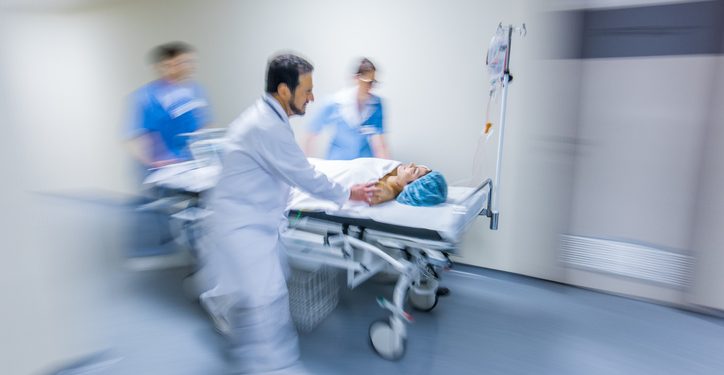Millions of people across the country are becoming increasingly concerned that they will not be able to access medical treatment if they need it as a result of the pandemic, research suggests.
An estimated 6.8 million adults – 13% of the population – say they are concerned they will not be able to get the care they need as hospitals and healthcare providers are overwhelmed by the impact of Covid-19.
The Wealth and Wellbeing Monitor – a quarterly survey 4,000 UK consumers carried out by Opinium for insurance provider LV= – also suggests that some 3.7 million (7%) adults have experienced, or a family member has experienced, a delay to a medical diagnosis, treatment or operation.
A spokesperson said that LV= is anticipating a rise in advanced stage cancer diagnoses and claims in 2021 and 2022 caused by a backlog of screenings and delays to early treatment.
In April 2020, LV= recorded a 45% fall in critical illness claims compared to 2019 figures. About 2,700 fewer people were diagnosed with cancer each week, and in May 2020 there was a 47% fall in urgent cancer referrals compared to May 2019.
Separately, the pandemic, lockdown and fears about contracting Covid-19 has left adults feeling increasingly lonely and anxious, LV=’s research shows.
Its analysis suggests that 13.7 million adults – 26% of the adult population – say they have felt lonely or isolated over the past three months. Over half of women (52%) have felt stressed or anxious in the past three months compared to a third of men (33%).
Parents are particularly concerned, with 39% of those with university-aged children (18-21) worrying about their education being disrupted and 26% worrying about the subsequent impact on their exams.
Parents also worry about their 18-21 year olds’ mental health, with more than a quarter (28%) fearing their children are feeling isolated or depressed.
More than a third (36%) of young adults themselves (18-24 year-olds) are more likely to feel isolated or lonely compared to the general population (26%).
Debbie Kennedy, director of protection at LV=, said the pandemic has highlighted the importance of financial resilience and revealed just how precarious the finances of many people are, particularly those who are self-employed, and highlights the important benefits of protecting income.
She said: “Fears about the financial impact of coronavirus, impending jobs losses, disrupted education and isolation caused by lockdown are all factors behind the general population’s rising anxiety levels.
“We have an opportunity as an industry to show that we have the solutions to address these concerns and there is more we can offer beyond the product.”






